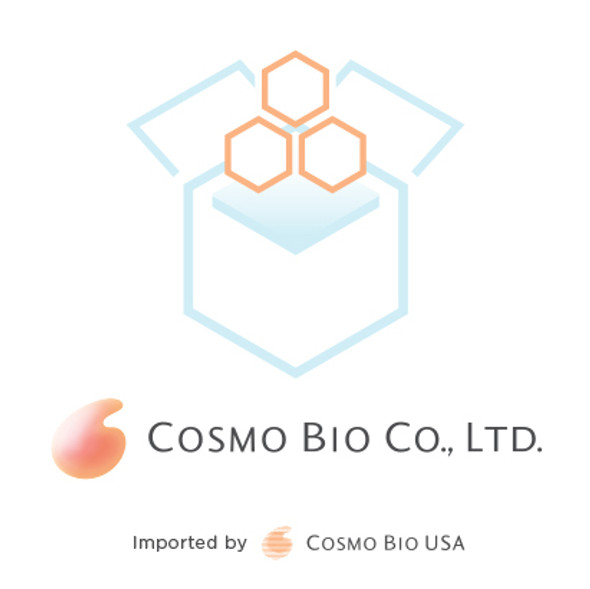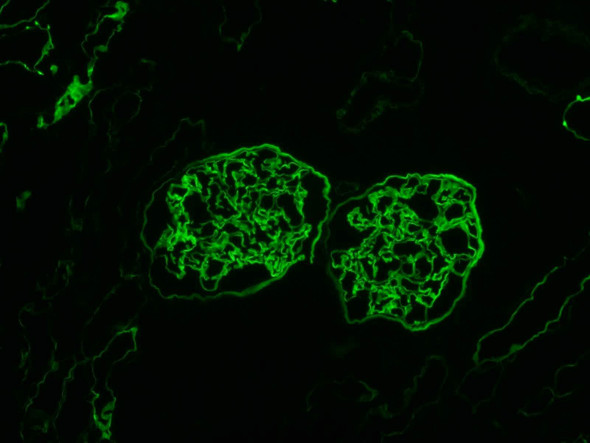Description
This immuno-staining cocktail of three differentially labeled collagen isotype-specific monoclonal antibodies helps distinguish Alport syndrome from unaffected individuals in analyses of renal and skin biopsies. It combines three monoclonal antibodies: two clones (H53 and B51) labeled with FITC) reveal the diagnostic α5(IV) chain while one (H25) labeled with Texas Red detects collagen α2(IV), acting as an internal positive control and revealing the basement membrane structure. Kidney renal basement membranes exhibit absent or reduced α5(IV) in glomerular, tubular and Bowmanâs capsular basement membranes in individuals with the inherited disease Alport syndrome. By contrast, the same membranes in unaffected humans express α1(IV) through α6(IV) collagen chains.
Applications
- Staining of human cryostat sections by direct immunofluorescence (acid-urea treatment not required)
Product specifications
- Product name fluorochrome-conjugated mAbs for Alport syndrome
- Code SGE-CFT45325
- Quantity 1.0 ml
- Appearance solution, 0.1% NaN3 as preservative
- Purification affinity chromatography
- Fluorescent labeling H53 and B51, FITC; H25, Texas Red
- Clone names H53 (rat IgG2a/kappa), B51 (rat IgG2a) and H25 (rat IgG1/kappa)
- Specificity H53 is specific to imperfection III of α5(IV) (Reference 1); B51 is specific to NC1 domain of α5(IV) (Reference 2); H25 is specific to imperfection XIII of α2(IV) (Reference 1).
- Antibodies preparation Monoclonal antibodies were prepared with synthetic peptides and native NC1 domain of type IV collagen as immunogens.
Storage
- In the dark at 2-4°C, or below -30°C. Stable at these conditions for several years
Source
- Shigei Medical Research Institute, 2117 Yamada, Okayama 701-0202, Japan; TEL: +81-86-282-3113; FAX: +81-86-282-3115; E-mail: inst@shigei.or.jp
Reference
- 1) Kagawa et al. (1997) Nephrol. Dial. Transplant. 12: 1238-1241 2) Borza DB et al. (2001) J. Biol. Chem. 276: 28532-28540






